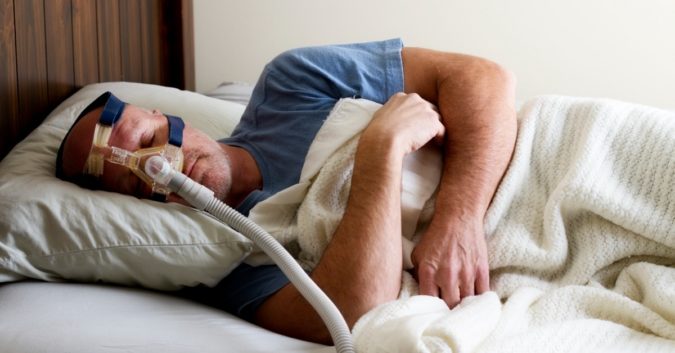On the heels of a massive 15-million-unit June recall of commonly used Philips Respironics sleep-aid devices, the U.S. Food and Drug Administration (FDA) has announced that its comprehensive inspection found the company knew about the potentially carcinogenic issue in its devices but failed to act.
The recall by Philips, which included certain mechanical ventilators, BiPAP, and CPAP machines, cited potential health risks associated with the sound-reducing foam contained within these devices. According to the FDA, this foam can break down over time and be inhaled by those using the devices, potentially exposing them to dangerous chemicals in the process.
The conclusion to the FDA’s 3-month inspection comes after the agency visited and inspected a Philips manufacturing plant in Pennsylvania and combed through internal memos, emails, testing results, as well as over 222,000 customer complaints.
Chief among the FDA’s findings were documents showing company executives knew of the foam-degradation problem for well over a year before issuing a voluntary recall. Warnings from inside the company dating back to 2016 included “at least 14 tests” showing the company was “aware of issues and concerns related to the potential foam degradation.”
For the millions of Americans who rely on these machines and others like them, Philips offered no viable repair or replacement. In a statement to NBC Chicago, the company said so many of the devices had been recalled that there weren’t enough resources or machines to offer patients a safer replacement for up to a year.
Philips Sleep-Aid Devices Can Break Down, Causing Injury
In the United States alone, more than 18 million individuals suffer from sleep apnea, a sleep disorder characterized by obstructed breathing during sleep. Many people living with the disorder rely on certain respiratory care devices to help them breathe more easily while asleep.
Philips Respironics announced its voluntary recall of dozens of its sleep-aid products after testing showed foam contained within the devices could break down over time and subsequently be inhaled by the users of the devices.
As described by the FDA, inadvertent inhalation of these loose particles is “a serious health risk” that could ultimately lead to cancer, organ damage, or even death.
Specifically, the FDA warns of:
- Kidney, liver, or lung cancer
- Kidney, liver, or lung failure or damage
Of the estimated 15 million recalled Philips devices, roughly 80% of the affected products are CPAP machines, particularly those in the first-generation of DreamStation machines (To learn more about specific models included in the recall, visit our full list here).
Replacement Foam May Not Be Safer Than Original
In addition to the findings in the FDA’s inspection report, the replacement, silicon-based foam the company had intended to use in the remodeled versions of its sleep-aid products is also in need of further evaluation.
Citing a similar silicone-based foam marketed outside the U.S. that had previously failed a safety test after it, too, wore down over time and released potentially carcinogenic particles, the FDA has requested that Philips contact an independent laboratory to conduct additional testing of potential safety risks.
Individuals Impacted by Recall Seek Legal Assistance
While the FDA’s inspection has uncovered evidence of potential negligence on behalf of the device manufacturer, its report is not a final determination, and the agency will wait to receive a formal response from Philips before any additional regulatory action is taken.
In the meantime, while millions of sleep apnea patients who rely on these machines hang in the balance, the FDA recommends that patients using the machines continue to use them — at least for the time being — citing the overall health-to-risk benefit.
As stated in its June alert, the FDA advises individuals currently using a recalled Philips device that has not yet been repaired and replaced to discuss their situation with their health care providers.
Help Filing a Philips CPAP Lawsuit
If you’ve used a Philips sleep apnea machine and experienced cancer or damage to your lungs, liver, or kidneys as a result, you may be eligible to receive financial compensation through a Philips CPAP lawsuit.
An established national law firm, Sokolove Law has the resources and reach to fight on behalf of our injured clients and hold powerful companies accountable for their negligence.
Over the last 45 years, Sokolove Law has recovered more than $1.6 Billion on behalf of clients affected by dangerous medical devices and drugs.
